Mark Anthony Neal's Blog, page 490
October 25, 2017
Unbought and Unbossed: A Conversation with Filmmaker Shola Lynch
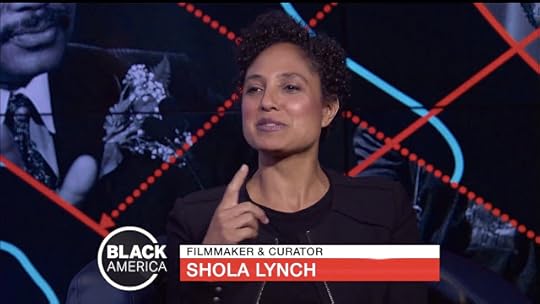 'Shola Lynch is arguably one of the most groundbreaking Black female filmmakers in recent history. She is best known for profiling Angela Davis for her documentary, Free Angela and all Political Prisoners, and Shirley Chisholm for her Peabody award winning film Chisholm '72: Unbought and Unbossed. In 2014 Lynch was named Curator for the Moving Image and Recorded Sound Division of the Schomburg Center for Research in Black Culture in Harlem. Lynch recently sat with Carol Jenkins to discuss her work at the Schomburg, what inspired her to tell the stories of two powerful black women, and the female character she's working to create for her first narrative film.' --
CUNY-TV
'Shola Lynch is arguably one of the most groundbreaking Black female filmmakers in recent history. She is best known for profiling Angela Davis for her documentary, Free Angela and all Political Prisoners, and Shirley Chisholm for her Peabody award winning film Chisholm '72: Unbought and Unbossed. In 2014 Lynch was named Curator for the Moving Image and Recorded Sound Division of the Schomburg Center for Research in Black Culture in Harlem. Lynch recently sat with Carol Jenkins to discuss her work at the Schomburg, what inspired her to tell the stories of two powerful black women, and the female character she's working to create for her first narrative film.' --
CUNY-TV
Published on October 25, 2017 18:03
Why Diversity Is More Important Than Meritocracy: Quotas, Talent, Wall Street
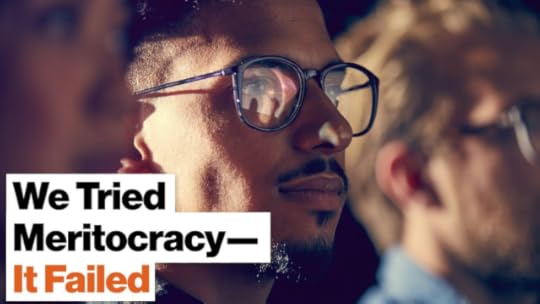 'We need to rethink our diversity strategy, says Sallie Krawcheck. What we've been trying for the last decade hasn't been working, but what exactly is the problem? Research reveals that diversity is actually worse in meritocracies. Managers—and particularly middle managers, Krawcheck points out—fall into the cognitive trap of hiring people who "remind me of a young me" (i.e. look like them and think like them) instead of more cognitively diverse people who would bring a missing skill set to a team. Sallie Krawcheck is the author of
Own It: The Power of Women at Work
.' --
Big Think
'We need to rethink our diversity strategy, says Sallie Krawcheck. What we've been trying for the last decade hasn't been working, but what exactly is the problem? Research reveals that diversity is actually worse in meritocracies. Managers—and particularly middle managers, Krawcheck points out—fall into the cognitive trap of hiring people who "remind me of a young me" (i.e. look like them and think like them) instead of more cognitively diverse people who would bring a missing skill set to a team. Sallie Krawcheck is the author of
Own It: The Power of Women at Work
.' --
Big Think
Published on October 25, 2017 17:52
#MeToo Is Just The Beginning Says Tarana Burke Creator of Viral Campaign
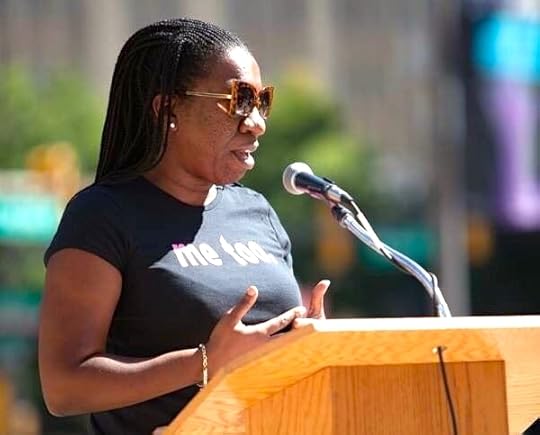 '#MeToo flooded social media last week, as women took to Twitter and Facebook, testifying about their experiences of sexual assault and harassment. The internet campaign sprung up after dozens of women spoke out against movie producer Harvey Weinstein. But that phrase was first coined a decade ago by social activist Tarana Burke to help women of color to show solidarity with other survivors of sexual assault and harassment. Now Burke works in Brooklyn with the female empowerment group Girls for Gender Equity.' -- WNYC News
'#MeToo flooded social media last week, as women took to Twitter and Facebook, testifying about their experiences of sexual assault and harassment. The internet campaign sprung up after dozens of women spoke out against movie producer Harvey Weinstein. But that phrase was first coined a decade ago by social activist Tarana Burke to help women of color to show solidarity with other survivors of sexual assault and harassment. Now Burke works in Brooklyn with the female empowerment group Girls for Gender Equity.' -- WNYC News
Published on October 25, 2017 17:38
October 24, 2017
Black Death is Political by Karla FC Holloway
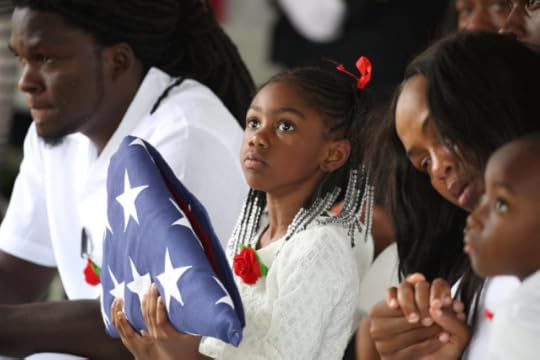 Joe Raedle/Getty ImagesBlack Death is Politicalby Karla FC Holloway | @ProfHolloway | NewBlackMan (in Exile)
Joe Raedle/Getty ImagesBlack Death is Politicalby Karla FC Holloway | @ProfHolloway | NewBlackMan (in Exile)When a gold star family is centered in our media attention, and one of the questions pitifully asked is “How was he left for two days?” readers know the question is about race. Its subtext is: “How was the black soldier the only one left behind?” Frankly, I anticipate that the actual reasons are absolutely related to the incidents of the battle.
I’m the wife of a retired officer. I remember our Viet Nam era discussions and training about how to support families who received the visit and to anticipate that unanswerable questions might overwhelm those that have answers. I mourn these four soldiers most recently in the news with a heartache grievously meted out to each. But I recognize as well there is a frame for the question about the black soldier that our history and our contemporary conduct make readily available because we are a nation that color-codes dying.
And if we are at all unsure about that conduct, just consider the vicious and disrespectful pushback directed at the widow and the congresswoman who represent the public bodies of the recent tragedy in Niger. The question is as culturally conditioned and color-coded as the ugly vitriol they’ve received in return. It has a history. African American “war mothers” of World War I, denied membership to the white association of American Gold Star Mothers, were forced to choose between protesting their segregated treatment or mourning their killed sons and visiting their European burial sites within Jim Crowed restrictions extended by the War Department.
21st century police shootings shielded by laws that disallow even the most reasonable questions to law enforcement are direct descendants of 19th century legally encouraged, courthouse-yard sited, sheriff-involved lynchings. Those who interrogate the conduct of the dead and their kin, those who practice pushback as their morbidly rehearsed ritual-of-choice were as familiar then as they are today. We see you.
This is why #BlackLivesMatters is necessary, correct, and clarion. It emerges from a history and a present of denial and shaming that would consider its victims the perpetrators. It renders the coherent, color-coded narrative of black deaths and dying that a clear-eyed look at the history produces as chaotic rather than explanatory.
I’ve been writing, speaking, testifying, sharing stories of black death and dying since the publication of my 2002 Passed On: African American Mourning Stories. And I’ve been living the stories of black death and dying all my days. That’s the shared cultural experience of African Americans. We come to know death and anticipate its cradle to grave company. We recognize its patterns. Where some would say “not in my neighborhood” others of us have funeral wear ready from our toddler years through our adulthood. We grow up planning or thinking about our own funerals. It’s the rule rather than the exception.
Therein lies the politics of black bodies—alive or dead. When the mortality tables for childhood asthma are remarkable for racial disparities, when deaths from gun violence are notable for racial demarcations, when police shootings disproportionately affect black communities then these origins announce the politic—health disparities, gun regulation, police training and bias. It seems we’d rather clear a moment for grief (“this is not the time…”) than consider and address the place of its origin.
I’ve urged medical ethics communities to dig beneath the seemingly altruistic conference of “vulnerable persons” and do the work that excavates how we “make” persons vulnerable by public policies that reinforce disparity and neglect. Before we blame lifestyle for coronary artery disease, examine housing policies and school allocations that restrict and confine healthy alternatives. With regard to the military, let’s understand that their ranks come from our schools where, in the perspective of a former U.S. president, the corruptions of our contemporary political landscape have compromised the moral education of our children.
It is absolutely reasonable to question every institution when black lives are, by pattern and practice, history and habit, subjected to bias. Whether it is members of the NFL or the AMA or the U.S. Military, asking the question is not the harm. Failing to engage the fact of the question—its production, its formation, and its resonance—will continue to make black bodies political, and black death our American politic.
***
Karla FC Holloway is the James B. Duke Professor of English & African American Studies and Professor of Law, Emerita at Duke University
Published on October 24, 2017 12:44
Oklahoma Imprisons Women at the Highest Rate in the United States
 'With twice as many women in prison as in other states, Oklahoma is the female-incarceration capital of the United States. This short documentary from the Center for Investigative Reporting investigates a tragic underlying cause for one Oklahoma woman’s imprisonment.' -- The Atlantic
'With twice as many women in prison as in other states, Oklahoma is the female-incarceration capital of the United States. This short documentary from the Center for Investigative Reporting investigates a tragic underlying cause for one Oklahoma woman’s imprisonment.' -- The Atlantic
Published on October 24, 2017 04:03
October 23, 2017
Chimamanda Ngozi Adichie on Liberal Cannibalism | The New Yorker Festival
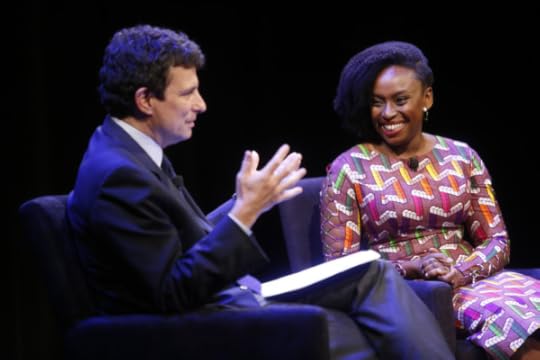 'Writer Chimamanda Ngozi Adichie talks with David Remnick about the black experience in America, and how the left often cannibalizes itself.' -- The New Yorker
'Writer Chimamanda Ngozi Adichie talks with David Remnick about the black experience in America, and how the left often cannibalizes itself.' -- The New Yorker
Published on October 23, 2017 04:00
The Root: We Need to Talk About Terrorism in Africa, Too
 'When terrorists killed 300 people in Somalia, the world was silent. No talk-show posturing. No wall-to-wall coverage.' -- The Root
'When terrorists killed 300 people in Somalia, the world was silent. No talk-show posturing. No wall-to-wall coverage.' -- The Root
Published on October 23, 2017 03:52
October 22, 2017
Ilhan Omar Is Shifting The Narrative Of What's Possible As Somali-American Muslim Legislator |
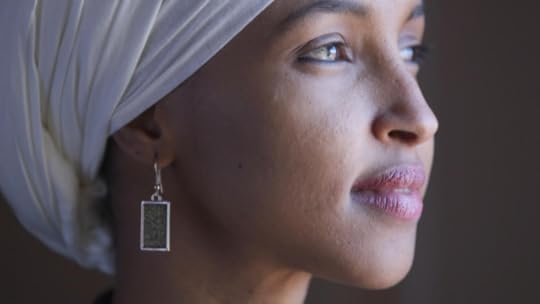 'Ilhan Omar is the first Somali-American Muslim person to become a legislator. "People said I should be proud of myself if I got even 10% of the votes, but I’m pretty competitive. I wanted to keep going so I could prove them wrong. I ended up pushing all of the negative things aside because I kept thinking, regardless of whether we win or lose, this will shift the narrative about what is possible."' -- TIME
'Ilhan Omar is the first Somali-American Muslim person to become a legislator. "People said I should be proud of myself if I got even 10% of the votes, but I’m pretty competitive. I wanted to keep going so I could prove them wrong. I ended up pushing all of the negative things aside because I kept thinking, regardless of whether we win or lose, this will shift the narrative about what is possible."' -- TIME
Published on October 22, 2017 06:15
Trumpeter Keyon Harrold's Vibrant Tunes Offer Strength & Courage
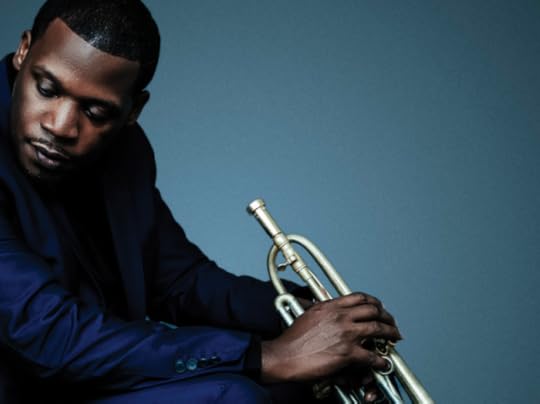 'This session Trumpeter, singer, and composer Keyon Harrold has played with Beyoncé, Common, Erykah Badu, Rihanna, Eminem, D’Angelo and the Vanguard, LL Cool J, and Maxwell, to name a few. He was also the trumpet player behind Don Cheadle in the Miles Davis biopic, Miles Ahead; yes – that was his sound you were hearing on the Grammy-winning soundtrack. On his new album, The Mugician, (a play on musician & magician), the Ferguson, MO-raised, NYC-based Harrold returns to his own music, with the help of a few friends and past collaborators, including Gary Clark Jr, Bilal, & Robert Glasper, among others.' -- Soundcheck
'This session Trumpeter, singer, and composer Keyon Harrold has played with Beyoncé, Common, Erykah Badu, Rihanna, Eminem, D’Angelo and the Vanguard, LL Cool J, and Maxwell, to name a few. He was also the trumpet player behind Don Cheadle in the Miles Davis biopic, Miles Ahead; yes – that was his sound you were hearing on the Grammy-winning soundtrack. On his new album, The Mugician, (a play on musician & magician), the Ferguson, MO-raised, NYC-based Harrold returns to his own music, with the help of a few friends and past collaborators, including Gary Clark Jr, Bilal, & Robert Glasper, among others.' -- Soundcheck
Published on October 22, 2017 05:53
Tiny Desk Concert: Thundercat
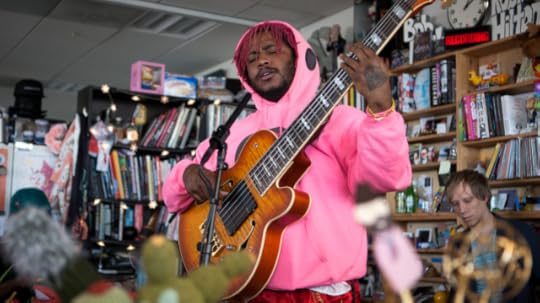 "Thundercat, born Stephen Bruner, is willing and able to shape-shift to fit into just about any box you show him — he just won't stay in there for long. Whether fusing his talent for jazz while a bassist with punk legacy act Suicidal Tendencies or as a member of Snoop Dogg's band — maybe running a little too far with a solo here and there — the focus seems to eventually drift his way." --
NPR Music
"Thundercat, born Stephen Bruner, is willing and able to shape-shift to fit into just about any box you show him — he just won't stay in there for long. Whether fusing his talent for jazz while a bassist with punk legacy act Suicidal Tendencies or as a member of Snoop Dogg's band — maybe running a little too far with a solo here and there — the focus seems to eventually drift his way." --
NPR Music
Published on October 22, 2017 05:41
Mark Anthony Neal's Blog
- Mark Anthony Neal's profile
- 30 followers
Mark Anthony Neal isn't a Goodreads Author
(yet),
but they
do have a blog,
so here are some recent posts imported from
their feed.



